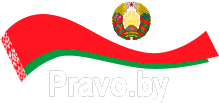
Belarusian Red Cross Society

ORGANIZATION INFORMATION
The Belarusian Red Cross Society is a republican public association created in 1921, and is an integral part of the International Red Cross and Red Crescent Movement.
Fundamental principles of the International Red Cross and Red Crescent Movement: humanity, impartiality, independence, neutrality, voluntariness, unity, universality.
The Belarusian Red Cross Society is the largest public association in the Republic of Belarus, carrying out humanitarian activities. More than 1 million members and more than 19 thousand volunteers - a gold fund, an invaluable human resource. Thanks to their participation, hundreds of thousands of the most socially disadvantaged citizens receive the necessary assistance, do not remain alone with their misfortune.
A member of the Belarusian Red Cross Society (BOCC) can be any citizen of the Republic of Belarus, a stateless person or a foreign citizen permanently residing in the Republic of Belarus, having reached the age of sixteen, sharing the goals of the BOCC, recognizing and observing the BOCC Charter, paying an annual membership fee in the amount and manner established by the BOCC Presidium.
Membership in the BOCC is open to every person, regardless of race, gender, religious, linguistic, class affiliation or political views.
Activities of the Red Cross:
- training of the population and interested structures in providing first aid in accordance with the European standard;
- dissemination of knowledge about the Red Cross Movement and humanitarian law;
- assistance in emergency situations;
- Combating trafficking in persons and domestic violence;
- the provision of medical and social assistance by the Red Cross Sisters of Charity service;
- assistance to refugees and asylum seekers;
- youth against HIV / AIDS - reduction of stigma and discrimination against people living with HIV among young people through public events and information sessions in educational institutions and enterprises;
- harm reduction - reducing the likelihood of HIV spread among intravenous drug users;
- youth participation in civil society - development and promotion of the youth volunteer movement as a form of participation in society and solving social problems of local communities;
- conducting charity events and providing targeted assistance to vulnerable categories of the population.


 Office of the President of the Republic of Belarus
Office of the President of the Republic of Belarus President of the Republic of Belarus
President of the Republic of Belarus